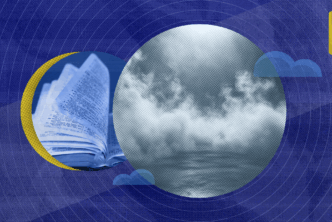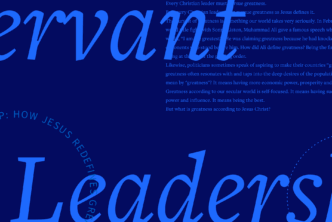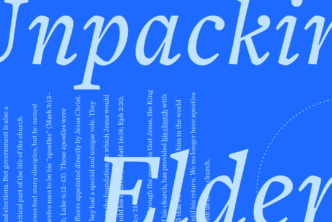Most of us are aware that 35-40% of the Hebrew Bible can be described as poetic (not to speak of the poetic dimensions of Hebrew narrative). Yet, what theological difference does it make that poetry is the literary form for so much of the Bible? As Jews and Christians receive the Bible as communication that discloses God – what significance does the poetic medium play?
Students, ordinands, priests, poets, and biblical scholars gathered together from around the UK and well beyond at historic Ushaw College, nestled in England’s Durham county countryside, to discuss questions such as this through the prism of some of scriptures more difficult and dynamic texts at a conference entitled “New Song: Biblical Hebrew Poetry as Jewish and Christian Scripture for the 21st Century”.

The vision of the conference was to host a conversation between Jewish and Christian scholars of biblical Hebrew poetry from around the globe, sharing insights and interpretive challenges which arise from the text and ultimately to discuss the relation of such texts to the needs of individual believers and the contexts of worshiping communities today. It was generously sponsored by Durham University’s Centre for Catholic Studies, the Centre for the Study of Jewish Culture, Society, and Politics, Ushaw College, and Logos Bible Software.
The conference, which took place on 24–25 June, was organized into four sessions with two speakers per session (each delivering a 30 minute paper or presentation followed by 15 minutes of open Q&A). What follows is a brief taste of each session:
Session I
The first session paired John Goldingay (Professor Emeritus, Fuller Theological Seminary) with David Firth (Trinity College Bristol), who both engaged with poems embedded within larger narratives.

Goldingay pointed out how the questions of historical critical scholars to Genesis 49 are fruitfully problematized or refocused by greater attention to the inherent poetic features of that text (such as word play, double meanings, and ambiguity) and how these features function to “get some convictions home to people.”
Firth’s paper, “Hannah’s prayer (1 Samuel 2:1-10): On the Interface of Poetics and Ethics in an Embedded Poem” sought to demonstrate how Hannah’s prayer, as poetry, “has provided the narrator with a mechanism for commenting on almost all aspects of the larger story,” in the books of Samuel and “is generative for the ethic it develops”

Evening Poetry Reading w/ Michael Symmons Roberts
After time for coffee, conversation, and a lovely meal around Ushaw’s massive Parlour table, conference attendees were joined by members of the general public for the conference’s own embedded poetry reading and discussion with award winning poet, professor, and journalist Michael Symmons Roberts.
Our hope as organizers for this poetry reading was to demonstrate poetry’s possibilities to re-envision life before God through a process of breaking down and rebuilding, making strange the familiar and bringing near the numinous. Roberts treated those present to a poignant reading, especially from his work Drysalter, a 150-poem nod and dialogue with the biblical psalter. Below a snippet from the beginning and end of one such poem, “A New Song”:
“Sing a new song to the Lord,
sing through the skin of your teeth…
sing what you never could say,
sing at the fulcrum of joy,
sing without need of reply.”
Symmons Roberts spoke in the Q&A of how Robert Alter’s translation of the Psalms jostled him out of his familiarity with the Psalms and into the strangeness of the Hebrew poetry. I was struck by the relevance and implications for ongoing biblical translation work – not only for biblical scholars and communities of faith, but also for artists and practitioners in other disciplines. What follows are his own reflections:
“…Particularly around the time I was working on these poems Robert Alter’s translation of the Psalms came to my attention and really connected with me partly because of his desire to reconnect the Psalms with what he felt were their roots in the body, the imagery of the body…As an ex-athiest (well, I was a teenage atheist, I lost my atheism in my twenties and have kind of been looking for the right balance ever since, somewhere between faith and doubt)…but, I suppose partly because of my atheist bones, I can only really understand when people talk about spirituality through the body, the metaphors and the images of the body…I find it very hard to talk in abstract language about spirituality. And so these translations of the Psalms really connected with me.”
This kind of visceral, embodied imagery lilted through Ushaw’s great Exhibition Hall. Conference participants walked away with a renewed respect for the aural nature of poetry and a realization that there may very well be a thing that only a poem or song can do (or in the words of Albus Dumbledore, “ah music, a magic beyond all we do here!”).
Session II
The second and third sessions on the morning of Tuesday, 24 June, were focused around the Psalter. The second session paired Dr. June Dickie (Wycliffe Bible Translators) alongside Benjamin Sommer (Jewish Theological Seminary) in presentations that dealt with various forms of poetic translation or appropriation.

June Dickie presented three fascinating case studies in which the psalms take on a new life when “translated” by Zulu youth and AIDS-sufferers using various media (music, dance, song, and spoken poetry). This sparked a variety of questions asking for more clarity on: presuppositions regarding the nature of Scripture among those hosting and those participating in the performance-oriented translation workshops (Prof. Walter Moberly, Durham University) as well as the place of Zulu scholars working with the Hebrew language and what they contribute to such translation activities (Matthew Williams, PhD Candidate, Durham University).

In response to the implications of Dickie’s work on performance translation in her proposal that it is “the community which defines the boundaries of what is an acceptable translation,” Durham MA student Rebecca Watts enquired as to how community is being defined and asked about related issues of ensuring appropriateness in the midst of performative appropriation.

This stimulating Q&A session was followed by Benjamin Sommer, who discussed how the religious function of poems is illuminated by greater attention to the characteristics of biblical poetry – particularly its cyclical (non-linear) character. Listeners were immersed in Sommer’s contrasting of prosaic and poetic approaches to time and eternity. In his discussion of Psalm 114, Sommer concluded, “What matters to the poet are the deeper affiliations among events that undue attention to narrative sequence will obscure. The liberation from slavery and the giving of the law are not two events, separated in time; they are simply two facets of a single reality…Psalm 114 encourages us to view things sub specie aeternitatis, from a perspective outside of time.”
Session III
Session III paired Rabbi Shai Held (Hadar Institute, NYC) with Ellen Davis (Duke University) each wrestling with the nature and theology of lament: R. Held’s with a paper entitled “‘With Fists Flailing at the Gates of Heaven’: Wrestling with Psalm 88, A Psalm of Chronic Illness” and Professor Davis a paper focusing on Psalm 38 entitled, “Bending the Silence.”
Rabbi Held suggested that Psalm 88 is far more desolate than most scholars allow, that they do not adequately reckon with the psalmist declaring that he has been “dying since youth,” (Ps. 88:6), that the nature of his suffering is chronic. Rabbi Held reflected on this: “Given the intensity and duration of the psalmist’s suffering, given how many desperate prayers have gone unanswered; it is a wonder that he goes on praying at all.” Yet it is God’s lack of response that elicits “more intense address.” In a riveting postscript Rabbi Held deftly raised the question, “How are we to pray a psalm like this with integrity?” Turning to the work of Rabbi Joseph Soloveitchik, Held gestured towards the transformational, perhaps even redemptive, nature of lament which grants to suffering the dignity of language, insisting that we “need not lie about our suffering,” and that “honesty is never a sacrilege.”

Ellen Davis introduced Psalm 38 as illustrating, “the distinctive value of lament psalms as religious literature, namely their sustained and possibly unique potential for eliciting a response…for changing the conversation from the abstract and technocratic to something that is profoundly humane.” In light of this, it seems important to mention that somewhere in the measured gravitas of her reading, quite to my own surprise, out of the depths – from concealed reservoirs of marginalized personal, familial, and national anguish – I found a dam breaking and I was unexpectedly crying at a conference that I had helped organize.
Perhaps it was Davis’ triangulating treatments of Psalm 38: through the eyes of 17th century poet-preacher, John Donne; in her own use of Psalm 38 in a gathering of health-care professionals “assembled to consider the opioid crisis that is ravaging my country”; in the bringing of this text into interpretive dialogue with the contemporary dance of the Ekklesia Contemporary Ballet (Connecticut, USA). Above all, I think it was Davis’ determination to honor and articulate the ability of the psalms of lament to engage our affective dimension.
Session IV
After a buffet lunch and time to walk the grounds in quiet reflection or conversation, all gathered once again for the final session of the conference to discuss the dynamics of prophetic poetry.
Katie Heffelfinger (The Church of Ireland Theological Institute) spoke of divine speech as poetically presented as an, “urgent counter balance to our tendency to valorize that which is simple, clear, direct and paraphrasable by insisting that relationship with God invites us into a realm in which mystery, paradox, emotion and imagination are profoundly relevant.” First Katie introduced biblical poetry’s ways of cultivating certain postures in hearers (imagination, emotional encounter – including the need to surrender control over it, the formation of humility, receptivity and intellectual honesty). After this she showed how these features are at work in Isaiah 45:9-25 making transformative demands on readers by means of the poetry’s ambiguity: “In this poem…ambiguity invites wrestling with divine speech itself, an encounter that has the capacity to shape us into more receptive, more engaged, more imaginative readers.”

This sweeping, somewhat programmatic, paper gave rise to a diverse set of fascinating questions, including the following interaction between Benjamin Sommer and Heffelfinger:
Q: “I loved the paper, couldn’t agree with it more…but, I wanted to ask, moving from poetics to something like a doctrine of scripture, I’m just wondering if you would be interested in commenting, or I’m wondering if you just did implicitly [in the paper] comment on or demolish the doctrine of the perspicuity of scripture?…and, of course, a legitimate answer to this could be ‘no’” –Benjamin Sommer
A: [through audience laughter and her own] “There is a footnote early on where I sort of name my location which does drive some of my attention to these matters and I think in an early draft it did include reference to the doctrine of perspicuity of scripture because it is one that shapes the kind of tradition where I encounter people regularly. Yes, I think the notion that scripture exists to be clear is one that attention to biblical Hebrew poetry inherently problematizes…I think that is a very important role for it. I suppose it is one of the reasons I find the ambiguity such an important feature because it says to us, ‘what you are asking me to be is not what I am,’ and I think taking scripture seriously as scripture means learning to form our notions of what scripture is – from what it is, not what we want to ask it to be.”

Yisca Zimran (Bar Ilan University, Israel) presented a paper entitled, “The Dynamic Relationship between God and Man in the Book of Hosea: A Dynamic – Synchronic Reading” in which those gathered were treated to a banquet of Hebrew. Zimran argued that the recurrence of key phrases provides a foundation for a dialogue between various poetic units of Hosea, employing S. Moiyse’s term “dialogical intertextuality.” In her concluding reflections she teased out interesting links between a canonical approach and readerly involvement in the interpretation of the prophetic work.
After this final session everyone gathered for a book raffle and wine reception followed by another lovely dinner. The festivities concluded later that evening with a delightful round table discussion lead by Durham University’s own Dr. Richard Briggs.

Feedback
Here’s what a few attendees had to say at the close of the conference:
“When the conference finished I desired to read the Hebrew Bible even more than before…it sent me back into the Bible, to see things afresh for myself.” -Igor Baumann (PhD Candidate, Durham University)
“One of the highlights for me was watching Jewish and Christian scholars interacting cheerfully with deep mutual respect.” –Anonymous Delegate
“The pairing of speakers in each session complemented and contrasted very well and helped us make new connections.” –Anonymous Delegate
Publication
Conference papers will be published in a volume with Lexham Press (Forthcoming, December, 2020). This will include a forward by Prof. Walter Moberly, reflective responses by Prof. Sue Gillingham (Oxford), Prof. Alan Cooper (Jewish Theological Seminary), and Irish poet and linguist, Michael O’Saidhail. It will also be interspersed with poetry from Jewish and Christian poets down the centuries (including a poem or two read at the conference by Michael Symmons Roberts).
Audio recordings of papers will be posted in the coming weeks in the “Conferences” section at the following link: https://www.dur.ac.uk/theology.religion/ccs/audio
For further general information on the conference speakers and papers see: https://www.newsongconference.com/
]]>



